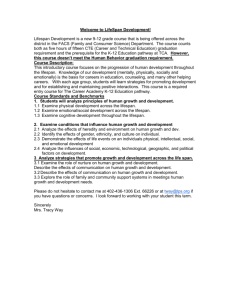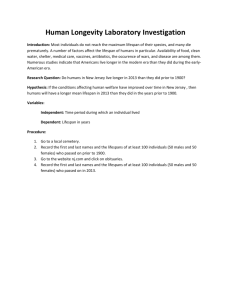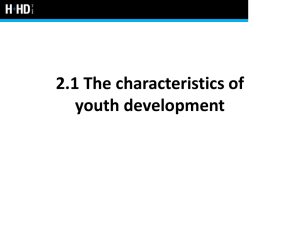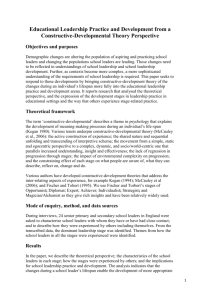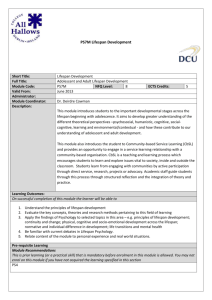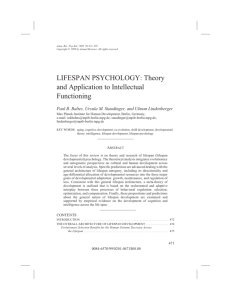HHG4M1
advertisement
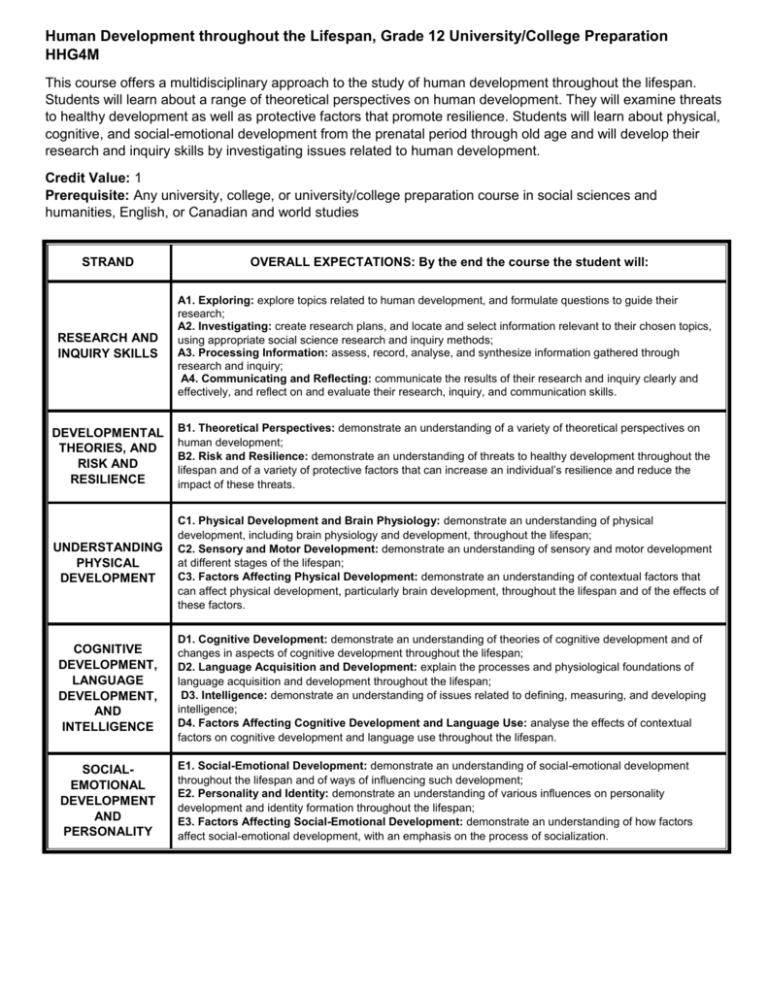
Human Development throughout the Lifespan, Grade 12 University/College Preparation HHG4M This course offers a multidisciplinary approach to the study of human development throughout the lifespan. Students will learn about a range of theoretical perspectives on human development. They will examine threats to healthy development as well as protective factors that promote resilience. Students will learn about physical, cognitive, and social-emotional development from the prenatal period through old age and will develop their research and inquiry skills by investigating issues related to human development. Credit Value: 1 Prerequisite: Any university, college, or university/college preparation course in social sciences and humanities, English, or Canadian and world studies STRAND OVERALL EXPECTATIONS: By the end the course the student will: RESEARCH AND INQUIRY SKILLS A1. Exploring: explore topics related to human development, and formulate questions to guide their research; A2. Investigating: create research plans, and locate and select information relevant to their chosen topics, using appropriate social science research and inquiry methods; A3. Processing Information: assess, record, analyse, and synthesize information gathered through research and inquiry; A4. Communicating and Reflecting: communicate the results of their research and inquiry clearly and effectively, and reflect on and evaluate their research, inquiry, and communication skills. DEVELOPMENTAL THEORIES, AND RISK AND RESILIENCE B1. Theoretical Perspectives: demonstrate an understanding of a variety of theoretical perspectives on human development; B2. Risk and Resilience: demonstrate an understanding of threats to healthy development throughout the lifespan and of a variety of protective factors that can increase an individual’s resilience and reduce the impact of these threats. UNDERSTANDING PHYSICAL DEVELOPMENT C1. Physical Development and Brain Physiology: demonstrate an understanding of physical development, including brain physiology and development, throughout the lifespan; C2. Sensory and Motor Development: demonstrate an understanding of sensory and motor development at different stages of the lifespan; C3. Factors Affecting Physical Development: demonstrate an understanding of contextual factors that can affect physical development, particularly brain development, throughout the lifespan and of the effects of these factors. COGNITIVE DEVELOPMENT, LANGUAGE DEVELOPMENT, AND INTELLIGENCE D1. Cognitive Development: demonstrate an understanding of theories of cognitive development and of changes in aspects of cognitive development throughout the lifespan; D2. Language Acquisition and Development: explain the processes and physiological foundations of language acquisition and development throughout the lifespan; D3. Intelligence: demonstrate an understanding of issues related to defining, measuring, and developing intelligence; D4. Factors Affecting Cognitive Development and Language Use: analyse the effects of contextual factors on cognitive development and language use throughout the lifespan. SOCIALEMOTIONAL DEVELOPMENT AND PERSONALITY E1. Social-Emotional Development: demonstrate an understanding of social-emotional development throughout the lifespan and of ways of influencing such development; E2. Personality and Identity: demonstrate an understanding of various influences on personality development and identity formation throughout the lifespan; E3. Factors Affecting Social-Emotional Development: demonstrate an understanding of how factors affect social-emotional development, with an emphasis on the process of socialization.
